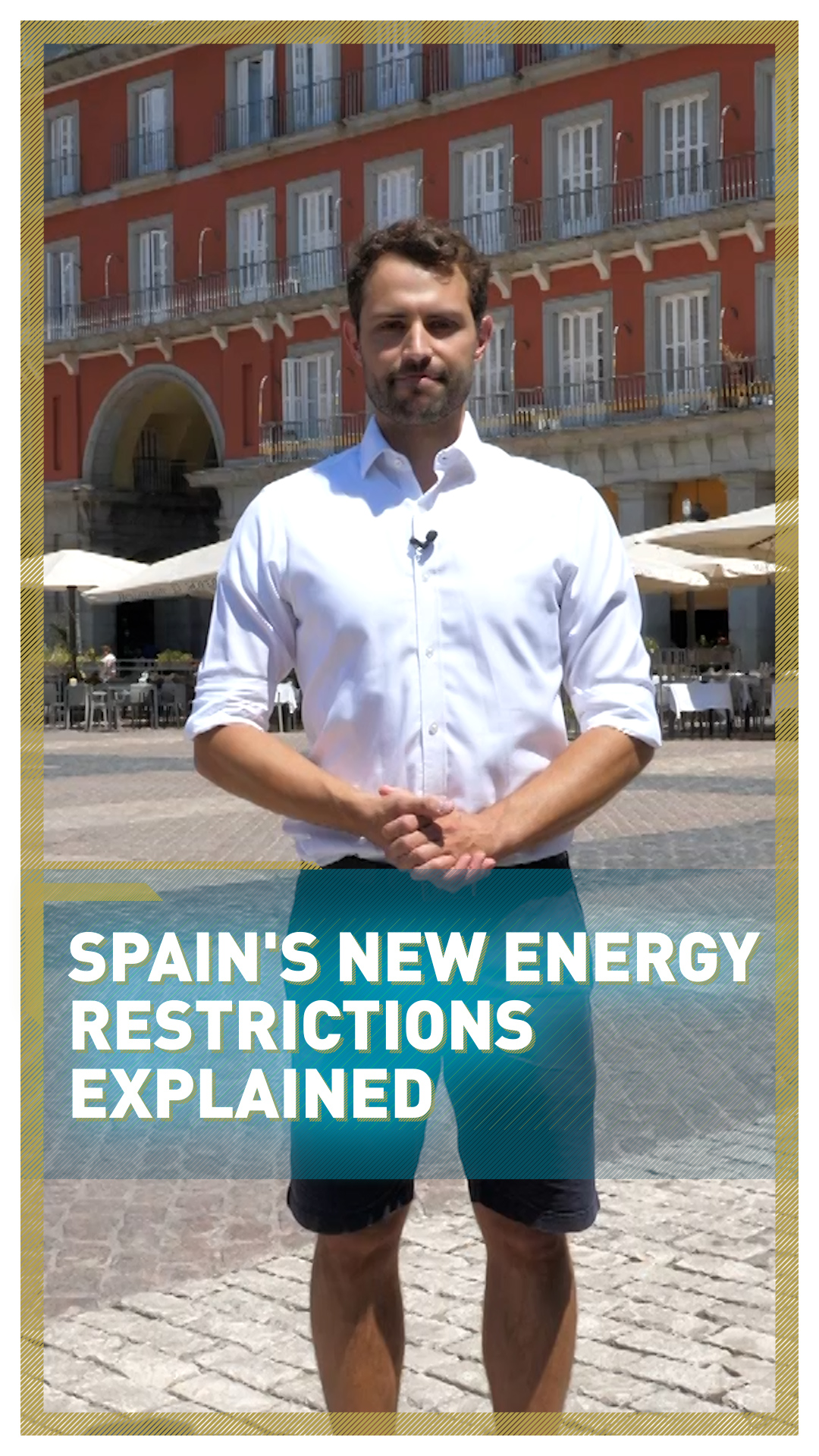01:03

Spain's controversial new energy policy will come into force as planned on August 10, says the government.
On Monday, the opposition People's Party called on ministers to drop the measures, which will require businesses to restrict air conditioning to no cooler than 27C in summer - and limit heating to below 19 degrees in winter.
The measure applies to airports, bars, cinemas, rail stations, shopping centres, theatres and hotels - although ministers says there is leeway for restaurant kitchens, gyms, and nightclubs.
The government also wants shops to make sure that store fronts go dark from 10pm local time.
READ MORE
The story of a Mariupol survivor
Fulfilling a promise… 1,500 years late
Swimming in Odesa's catacombs
Opposition
A spokesperson for the People's Party said the prime minister was acting "unilaterally" and that he was "not interested in consensus".
Spain's environment minister confirmed the government would continue as planned to enforce the policy.
Teresa Ribera held talks with the leaders of the country's 17 regions over the energy-saving measures on Monday.
The online meeting was called to "align the policy" and "clear up any doubts", according to the government.
But the mayor of Madrid, Isabel Diaz Ayuso, a rising star within the People's Party, says the policy will put off tourists and that she does not plan to enforce the measure in the Spanish capital.

A thermometer reading 26.8 degrees in a shopping mall in Madrid, Spain. Shops will have to set air conditioning to no lower than 27 degrees under the new rules. Reuters/Susana Vera
A thermometer reading 26.8 degrees in a shopping mall in Madrid, Spain. Shops will have to set air conditioning to no lower than 27 degrees under the new rules. Reuters/Susana Vera
Difficult winter
Spain is trying to reduce its energy use by 7 percent ahead of what the European Union predicts could be a difficult winter for energy supplies, due to Russia's invasion of Ukraine.
On Monday, the finance minister Maria Jesus Montero accused the opposition of being focused on confrontation, rather than unity.
The EU says it has tried to be as united as possible in its plan to wean itself off a reliance on Russian gas. Spain itself does not depend on Russia for its energy as much as other European Union nations - but it has agreed to cut gas use by 7 percent.
The majority of the gas that Spain uses comes either from cargo deliveries from the United States, or via undersea pipelines from Algeria.
Cover picture: High energy costs are already leading to a shortage of ice in some parts of Spain, like this grocery store in Ronda, where a sign reads "There are no ice cubes." Reuters/Jon Nazca

